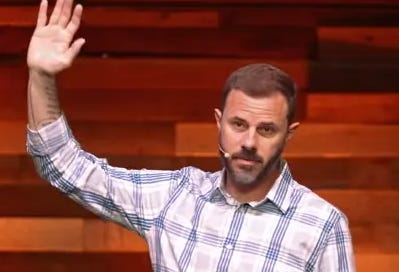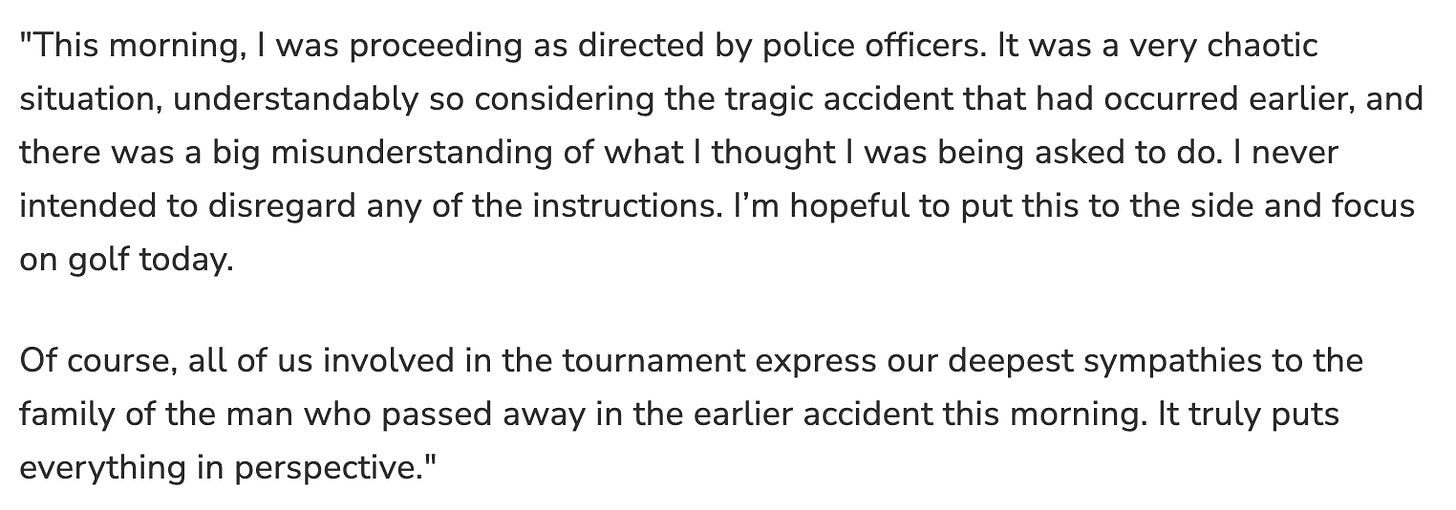Creepy pastors, arrogant golfers and troubled teens: June Newsletter
The creep
Pastor John Paul Miller continues to make news. We first heard of him making a bizarre announcement of his ex-wife’s death during a sermon at his church. He’s now under intense pressure as more details of his behaviour towards Mica (his ex-wife) in the years leading up to her dying.
This is a text message he allegedly sent in a group chat with Mica’s family.
My initial analysis of John Paul concluded he was controlling and manipulative and this text is a classic of manipulative wording. Notice that he can’t say directly that the family have done anything specific. Instead, his words are around “you”, “somebody” and “them”. From this we can conclude he doesn’t have the authentic experience to accuse them of specific wrongdoing, he’s just trying to manipulate their feelings.
In the trap
In May, golfer Scottie Scheffler was arrested on his way to the PGA Championship. He issued this statement following that arrest.
How many markers of deception in his statement?
“Never”: by saying “I never intended to disregard any of the instructions” we can be clear that he did disregard instructions given to him and “never” is often used in deception. A sign he may well have intentionally disregarded the instructions.
Distancing. “There was a big misunderstanding” has no ownership of that misunderstanding in it. The misunderstanding was all his, but he doesn’t want to admit that.
Repetition of “understanding” (in “understandably” and “misunderstanding”). Did Mr Scheffler feel he was wasn’t understood, or did he feel that the police didn’t understand how important he was?
Look at the sympathies expressed towards the family. He has expressed the sympathies from “all of us” he offers nothing personal in this regard.
“Truly”. Why the need to add “truly” in the line “it truly puts everything in perspective”? Often words like “truly” are added when the statement made is dishonest, but the person making the statement wishes to convince you it is truthful.
Arrogant and not owning his actions would be my conclusions.
Not my note
Here’s a note from a young girl who was missing for a while and is now happily home. In the note she tells her mum she’s going away.
There’s lots to see here (put anything you spot in the comments!) but I want to pull out two items that fall under the heading of “why did they write that”?
“It was nobodies decision but my own”. The fact she wants to communicate this and persuade her mother of this suggests that she may well have been coerced to leave home by someone else. She could have stated positively “this is my decision” but chose to introduce the thought of someone else, why? What we state in the negative is often the truth.
“I’m with some people that I trust very much”. Again she felt the need to persuade her mother she trusts these people very much. The word “very” is also a red flag here. I don’t believe the writer trusts these people at all and is worried about their intentions. As with someone else being involved in the decision, we can be sure the thoughts of trust are high in her head.
Finally, if you need more word analysis in your life then you can become a member of the YouTube Channel or a subscriber on Spotify to get early access to analysis, exclusive videos and more.
YouTube link is: https://www.youtube.com/channel/UCgBFGUA67ZunxIbe51LnqGg/join
Spotify is:






